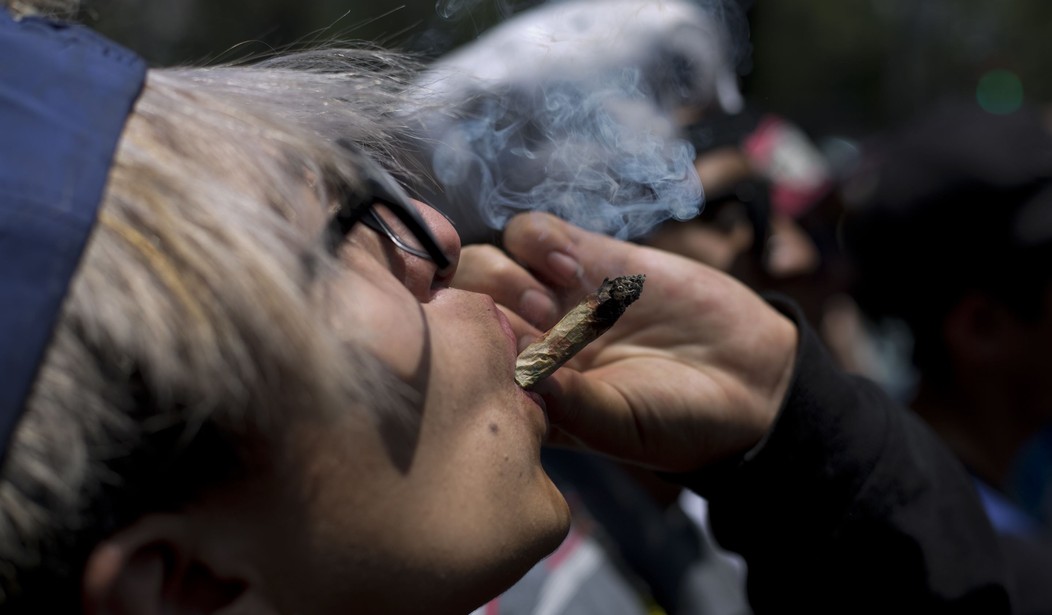In the first few months since passage of a ballot initiative last November, Missouri has become home to a billion-dollar recreational marijuana industry. With virtually no money available to oppose the $10 million spent by the cannabis industry to fully legalize the weed, the initiative passed by 53-47% in this traditionally conservative state.
A total of 23 states have legalized recreational marijuana now. The liberal states of Colorado and Washington were the first to do so eleven years ago, also based on ballot initiatives that have been the central part of the cannabis strategy to become the $30 billion industry that it is today.
Federal law continues to ban this harmful drug, so it remains illegal to transport across state lines. But most of the marijuana sold is grown or imported into each state illegally, and Bible-Belt Oklahoma is overrun with illegal production and related crimes even though Oklahoma voters rejected legalizing cannabis earlier this year.
The harmful potency of pot has tripled from a generation ago, and one study showed a 3- to 4-fold increase in schizophrenia over the last 20 years. One in six teenage users of cannabis will become addicted to it, and those addicted become 3.2 times more likely to inflict self-harm and die from homicide, often after they spark the violence.
The skunk-like smell of cannabis plants and production facilities are rattling liberal regions. The stench of pot smoking is far worse than cigarettes, and a Brooklyn lawmaker who seeks to ban outdoor pot-smoking in cities says that it is the second biggest complaint to his office, after trash.
California journalist Ann Louise Bardach observed the odor of cannabis operations is “like a few dozen skunks letting loose at the same time,” and many have complained about its daily effect on students in California public schools. She told the British newspaper The Guardian that cannabis production causes “respiratory ills now, asthma and weepy eyes” to some residents.
Recommended
Many of the “grows,” as cannabis cultivations are called, are still illegal to avoid the taxes and regulations. Legalizing pot in California caused the black market for pot-growing to boom to compete in a crowded market that has seen prices collapse by two-thirds in the last year, while many of the cannabis operations are run by out-of-town corporations rather than local farmers.
The mega-spending on ballot initiatives is how the cannabis industry has captured and victimized nearly half of our country, including places like Missouri where the Republican legislature did not want it. Then rampant exploitation and crime flows into a state as cannabis invades.
“We literally have thousands of pounds of finished marijuana from an illegal grow and illegal source,” California Merced County Sheriff Vern Warnke announced last week. Workers “were forced to process marijuana while staying in horrible living conditions to pay back the individuals that brought them across the border,” his office explained.
"The reality of legal weed in California: Huge illegal grows, violence, worker exploitation and deaths," screamed a headline in the liberal Los Angeles Times last September. More than five years after pot was fully legalized in that state, the vast majority of sales continue to be of illegal rather than legal marijuana.
So it won't be the many family-run farms in Missouri that benefit from this new billion-dollar enticement of violence, illegal aliens, and squalid working conditions. Instead, this will bring more crime to this conservative state, due to its easy ballot initiative process.
On August 8, the people of Ohio will vote on increasing its threshold for passing a ballot initiative to 60%, as has long been required in Florida, rather than merely 50% plus 1 allowed in Missouri. In supporting this Ohio measure, Republicans including Sen. JD Vance (R-OH) seek to protect against out-of-state corporate money enacting harmful laws through the ballot initiative process.
This change in Ohio is the only way to keep pot-by-ballot-initiative out of that key battleground state, as last week the cannabis industry fell only 679 signatures short of the 124,046 total they need to put on the November ballot an initiative to fully legalize pot. They have 10 days to obtain the additional signatures, which is easily done.
Congress rejects corporate pressure to legalize cannabis, as do most state legislatures. But spending tens of millions of dollars to push through a ballot initiative is pocket change to the cannabis industry, which continues to target conservative states like South Dakota and Florida where ballot initiatives are allowed.
There are few lawful profits in the cannabis industry, as ordinary investors and small businesses have been learning the hard way while watching their capital evaporate in smoke. Instead, legalizing pot makes it possible for the illegal operations to sell their weed to the unsuspecting public.
John and Andy Schlafly are sons of Phyllis Schlafly (1924-2016) and lead the continuing Phyllis Schlafly Eagles organizations with writing and policy work.

























Join the conversation as a VIP Member